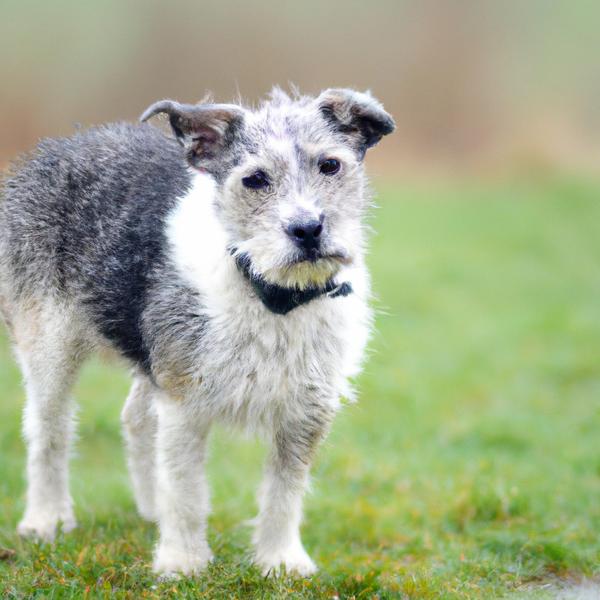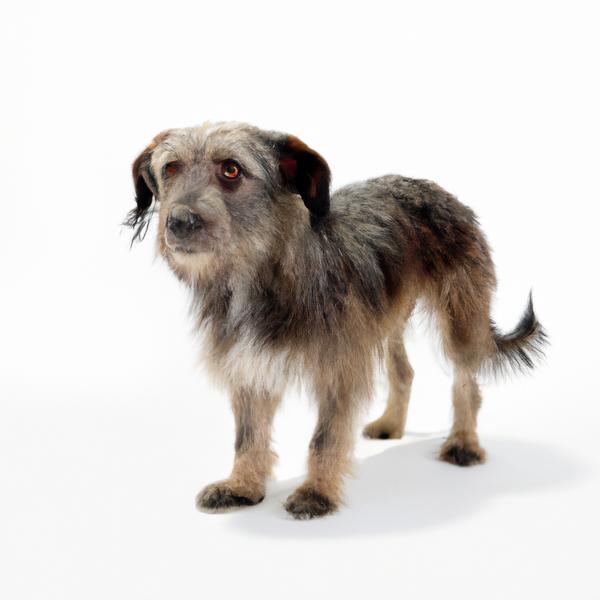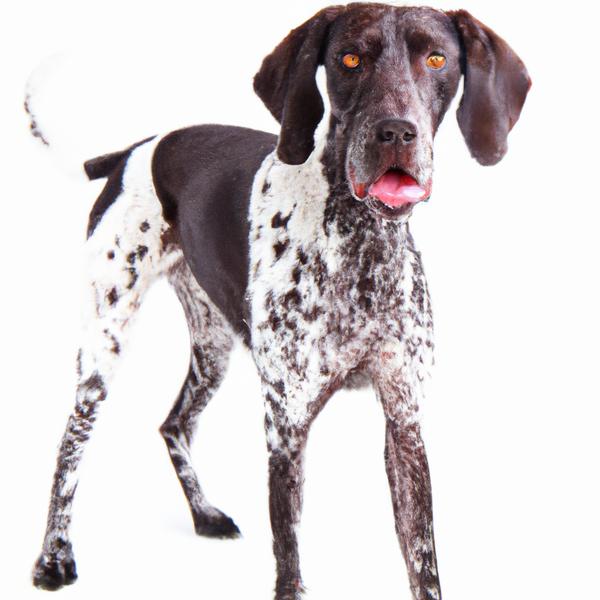Rhodesian Bernard vs. Lab-Pointer: Breed Differences and Similarities
Hypoallergenic
Are Rhodesian Bernards or Lab-Pointers hypoallergenic, or neither?
Unfortunately, neither Rhodesian Bernard nor Lab-Pointer are hypoallergenic, which may not make them the best choice for dog lovers who suffer from pet allergies.
Temperament
What are the personalities of Rhodesian Bernard and Lab-Pointer dogs?
Dignified
Independent
Happy
Sensitive
Intelligent
Friendly
Loyal
Gentle
Going
Social
Strong
Willed
Quiet
Mischievous
Active
Playful
Loving
Energetic
Alert
Intelligent
Friendly
Responsive
Affectionate
Loyal
Gentle
Going
Social
Outright
Tempered
Kind
Cheerful
Amiable
Shedding Level
Do Rhodesian Bernards shed more than Lab-Pointers, or which breed sheds more, Rhodesian Bernards or Lab-Pointers?
Rhodesian Bernards are moderate shedders, but regular brushing can reduce shedding and maintain coat health.
Lab-Pointers are low shedding dogs, requiring minimal coat care.
Ancestry
What are the origins of Rhodesian Bernard and Lab-Pointer breeds?
Rhodesian Ridgeback, Saint Bernard
Pointer and Labrador Retriever
Breed recognition
Which kennel clubs recognize/register Rhodesian Bernard and Lab-Pointer?
DRA = Dog Registry of America, Inc.
ACHC = American Canine Hybrid Club
DBR = Designer Breed Registry
DDKC = Designer Dogs Kennel Club
DRA = Dog Registry of America, Inc.
Date of Birth
When were Rhodesian Bernard and Lab-Pointer breeds first developed?
Unknown
2000s
Eye Color Possibilites
What are the eye colors of Rhodesian Bernard and Lab-Pointer dogs?
Brown
Amber
Hazel
Brown
Amber
Nose Color Possibilites
What are the natural nose colors of Rhodesian Bernard and Lab-Pointer?
Black
Brown
Black
Brown
Isabella
Coat Color Possibilites
What are the natural colors of the coat for Rhodesian Bernard and Lab-Pointer breeds?
Red
Fawn
Black
Brindle
Cream
Brown
Black
Coat Length
What is the typical coat length for Rhodesian Bernard and Lab-Pointer breeds?
Rhodesian Bernards have coats that can be either short or medium in length.
Lab-Pointers have short coats.
Coat Density
What is the density of the coat of Rhodesian Bernard and Lab-Pointer?
Coat Texture
What is the hair texture of Rhodesian Bernard and Lab-Pointer?
Straight
Litter Size
What is the usual litter size for Rhodesian Bernard and Lab-Pointer?
A Rhodesian Bernard can have a litter of 6-8 puppies on average. However, it's worth noting that the size of the litters can vary greatly. Factors that can influence litter size include the health of the mother, breeding history, and genetics.
A Lab-Pointer can have a litter of 5-10 puppies on average. However, it's worth noting that the size of the litters can vary greatly. Factors that can influence litter size include the health of the mother, breeding history, and genetics.
Adaptability
Rhodesian Bernards are known for their adaptability and can adjust well to different environments and lifestyle changes.
Lab-Pointers are highly adaptable and versatile, making them excellent companions for families and individuals of all lifestyles.
Health Issues
Between Rhodesian Bernard and Lab-Pointer, which breed is more prone to health problems?
Rhodesian Bernards typically have low vet costs due to their good health, but it's important to monitor their health and seek vet care when necessary.
Lab-Pointers are susceptible to health issues like all breeds, so it's important to monitor their health and seek veterinary care when needed.
Major Concerns
What are the major health concerns for Rhodesian Bernard and Lab-Pointer breeds?
Distichiasis
Gastric Torsion
Elbow Dysplasia
Hip Dysplasia
Dermoid Sinus
Heart Conditions
Wobbler's Syndrome
Elbow Dysplasia
Canine Hip Dysplasia (Chd)
Retinal Dysplasia
Minor Concerns
What minor health issues should be kept in mind when owning Rhodesian Bernard and Lab-Pointer?
Entropion
Deafness
Cataracts
Pyotraumatic Dermatitis
Diabetes
Hypothyroidism
Degenerative Myelopathy
Entropion
Cataracts
Occasional Tests
What occasional tests are recommended for Rhodesian Bernard and Lab-Pointer breeds?
Eye
Hip
Elbow
Hearing
Heart
Thyroid Tests
Blood And Urine Analysis
X-ray imaging
Blood Analysis
Optical Examination
Orthopedic
Regular Full Physical Examination By Veterinarian
Social Needs
Rhodesian Bernard vs Lab-Pointer social needs comparison
Rhodesian Bernard has very high social needs and requires regular mental and physical stimulation, a job or purpose, and companionship.
Lab-Pointer has above average social needs and thrives with interaction with humans and other dogs.
Sleeping Need
Which of the two sleeps the most/least: Rhodesian Bernard or Lab-Pointer?
Rhodesian Bernards have moderate energy levels and typical sleep patterns of 12-14 hours per day.
Lab-Pointers are active and require sufficient sleep to stay healthy.
Mouthiness
Mouthiness Comparison: Rhodesian Bernard vs Lab-Pointer?
Roaming urge
Rhodesian Bernard vs Labrador: Running away tendency?
Prey Drive
Rhodesian Bernard or Lab-Pointer - which breed has a higher level of prey drive?
Activity Level
Which breed has higher energy, Rhodesian Bernards or Lab-Pointers?
Rhodesian Bernards are medium-energy dogs and typically enjoy socializing and playing casual or even sustained games of chase with other dogs. They may also have occasional periods of barking or racing around the house.
Lab-Pointers are high-energy dogs. They need mental as well as physical exercise. These dogs require a lot of your involvement and without it they can, and will, become problematic dogs.
Tolerance of being left alone
Walks per Week
How many miles should Rhodesian Bernard or Lab-Pointer walk each week?
There's really no limit to how far you walk your dog as long as they're comfortable. For Rhodesian Bernard, it's at least 8 miles / week. Just remember to build distance and stamina gradually over time.
There's really no limit to how far you walk your dog as long as they're comfortable. For Lab-Pointer, it's at least 15 miles / week. Just remember to build distance and stamina gradually over time.
Activity per Day
Do Rhodesian Bernards or Lab-Pointers require more exercise?
In general most Rhodesian Bernards usually need at least 45 minutes of exercise daily. This can be spread across the day and include all sorts of high-energy activities, like walking, running and playing.
In general most Lab-Pointers usually need at least 75 minutes of exercise daily. This can be spread across the day and include all sorts of high-energy activities, like walking, running and playing.
Grooming
Which breed is easier to maintain in terms of grooming, Rhodesian Bernards or Lab-Pointers?
The Rhodesian Bernard has low grooming needs and is easy to maintain.
The Lab-Pointer is a low-maintenance breed that doesn't require much grooming.
Brushing Frequency
What is the recommended brushing frequency for Rhodesian Bernard and Lab-Pointer dogs?
Rhodesian Bernard should be brushed at least once a week. Of course you can give them more frequent brushes if you find that they are still shedding a lot
In general Lab-Pointer should be brushed at least once a month. Of course you can give them more frequent brushes, especially if they enjoyed it
Brushing Tools
What brushing tools are used for Rhodesian Bernards and Lab-Pointers?
Pin Brush
Deshedder
Nail Clipper
Slicker Brush
Flea Comb
Deshedder
Nail Clipper
Cups
How much food should be given to Rhodesian Bernard or Lab-Pointer in cups?
For an average 110-130 pound (50 - 59 kg) Rhodesian Bernard feed 3.5 cups daily. But, keep in mind, the amount you feed is going to be dependent on the quality of the food you are feeding.
For an average 55-80 pound (25 - 36 kg) Lab-Pointer feed 3 cups daily. But, keep in mind, the amount you feed is going to be dependent on the quality of the food you are feeding.
Daily Cost
Which breed has a higher daily cost, Rhodesian Bernard or Lab-Pointer?
The average cost of a Rhodesian Bernard is somewhere $3.90 - $4.20 per day.
The average cost of a Lab-Pointer is somewhere $2.50 - $2.70 per day.
Monthly Cost
Which breed has a higher monthly cost, Rhodesian Bernard or Lab-Pointer?
The average per month expenses of a Rhodesian Bernard is between $112 - $126. This makes an average of $1344 - $1512 per year. It will be on the higher side when the dog is still small because it will need more frequent visits to the vet, shots.
The average per month expenses of a Lab-Pointer is between $56 - $70. This makes an average of $672 - $840 per year. It will be on the higher side when the dog is still small because it will need more frequent visits to the vet, shots.
Sensitivity Level
How do Rhodesian Bernard and Lab-Pointer compare in sensitivity?
This breed is sensitive to its environment and best suited for patient and understanding families with a consistent routine.
This breed is sensitive and requires gentle handling and a calm home environment.
Apartment Friendly
Which breed is more apartment-friendly: Rhodesian Bernard or Lab-Pointer?
Rhodesian Bernards are good apartment dogs as long as they get enough exercise and stimulation outside of the apartment.
Lab-Pointers can do well in apartments with enough exercise and time outside, but a small yard would be ideal.
Child Friendly
Do Rhodesian Bernards or Lab-Pointers have a friendlier temperament towards children?
The typical characteristics of Rhodesian Bernard and Lab-Pointer indicate that this breed of dog is an ideal companion for kids and makes them family pets. Their gentle and protective nature and calm mentality make them gel along quickly with the younger humans.
Senior-friendly
Which dog is more suitable as a pet for the elderly - Rhodesian Bernard or Lab-Pointer?
Cat Friendly
Do Rhodesian Bernard or Lab-Pointer breeds have a better compatibility with cats?
Rhodesian Bernards are good with cats, but early training is needed to prevent chasing behavior.
Lab-Pointers are average in their friendliness toward cats and tend to do well with them, especially if raised together.
Dog Friendly
Which breed is more sociable with other dogs: Rhodesian Bernard or Lab-Pointer?
Rhodesian Bernards are friendly and active companions, and can be good family pets, though their friendliness towards other dogs may vary.
Lab-Pointers are generally very friendly towards other dogs, with a happy and affectionate temperament.
Pet friendly
How do Rhodesian Bernard or Lab-Pointer dogs interact with other pets?
Stranger Friendly
Which breed is more friendly with strangers: Rhodesian Bernard or Lab-Pointer?
Rhodesian Bernards are averagely friendly around strangers but benefit from early socialisation.
Lab-Pointers are friendly but may bark at strangers, and training is easy due to their intelligence.
Playfulness
Which breed is more playful between Rhodesian Bernard and Lab-Pointer?
Rhodesian Bernards have an average level of playfulness, enjoying playtime like most dogs but not excessively so.
Lab-Pointers are very playful, so adopting an older one might be a better option for a more relaxed experience.
Trainability
How do the trainability levels of Rhodesian Bernards and Lab-Pointers compare?
Rhodesian Bernards are usually easy to train but require consistency to fully obey commands.
The Lab-Pointer is highly intelligent and eager to please, making it a great choice for both novice and experienced dog owners due to its easy trainability.
Compare Rhodesian Bernard with other breeds

Labralas
Rhodesian Bernard vs Labralas

Daug
Rhodesian Bernard vs Daug

Scolden Terrier
Rhodesian Bernard vs Scolden Terrier

Powderpap
Rhodesian Bernard vs Powderpap

Golden Dox
Rhodesian Bernard vs Golden Dox

Peke-A-Boo
Rhodesian Bernard vs Peke-A-Boo

Welsh Mini Fox Terrier
Rhodesian Bernard vs Welsh Mini Fox Terrier

Raggle
Rhodesian Bernard vs Raggle

Black and Tan Coonoodle
Rhodesian Bernard vs Black and Tan Coonoodle

Peruvian Inca Orchid
Rhodesian Bernard vs Peruvian Inca Orchid

Lab-Pointer
Rhodesian Bernard vs Lab-Pointer

Hanover Hound
Rhodesian Bernard vs Hanover Hound
